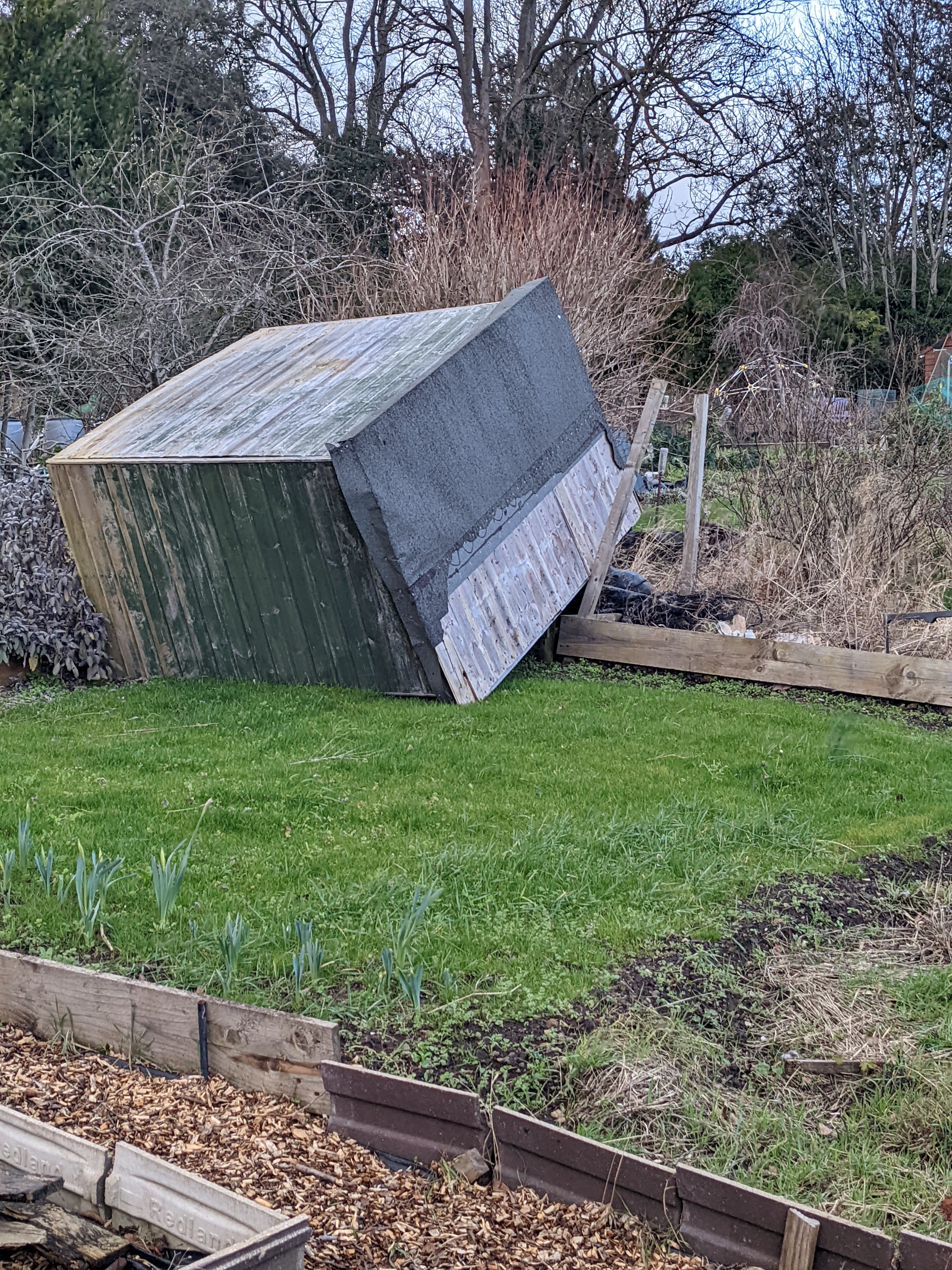
Lizard Point – in 2014
It’s not so much that we’ve never had weather like this before. The big difference is that severe weather is afflicting us more frequently; and so although I could try to support the ‘argument’ that climate change is fake news by citing this photo taken in 2014 and claiming that the weather has always been like this the only fact that matters is that there are many more extreme weather events than we had in the past, and it’s not down to sunspots, 5G telephone masts or Russian hackers it’s down to our profligate use of fossil fuels.

And so yesterday we were up at the allotment trying to make everything as secure as possible and then we went to the campervan to make sure it is as safe as we can make it. It’s parked within a hundred metres of the Severn Beach sea wall which, today , is the subject of red alert weather and flood warnings. Spring tide + force 10 winds always equals a storm surge so we’re paying constant attention to the mobiles for alerts . We once lived at the tidal end of the river Avon when we had the same combination of events combined with a snow melt and I’ve never seen water rise so rapidly, or menacingly. It was eerily silent as it topped the harbour walls and raced across the road towards us. Mercifully it stopped rising just a few inches below the point at which our basement would have flooded. This morning the only damage so far seems to be a flying fence from the Air BnB opposite the flat; and the scratches and dents were confined to the car which was abandoned by a previous tenant who took care to remove the plates before dumping it. At Green Park Station the glass roof – which was already in a precarious state – is shedding panes on to the ground, so probably no farmers’ market tomorrow. Ah well!
This week we’ve had two named storms; the first, Dudley, affected the north of the country but today’s storm Eunice is all over the South West. It kicked off at about 7.00am and built to crescendo during the morning. Apart from the flying fence the only other casualty looks like a smallish tree across the green. These winds growl and search at the windows with a real malignancy. Opposite my window as I write this, there’s a 20′ extractor chimney above a burger joint that’s become semi-detached at the top and is waving around alarmingly. It’s all very scary.
So the question is – how can we live sane, flourishing and fulfilled lives in this insane society – or should we even try to do so? Years ago we were at the much missed Bristol Flower Show when we encountered a man in a wheelchair who’d had both of his legs amputated. He was being pushed by his son who had lovingly attached an ashtray to the arm of the chair with a jubilee clip so that his dad could carry on smoking, having no feet to stub out his dog-ends. Obviously it’s not sensible to be angry or berate either the man or his son for assisting the habit that was so obviously killing him. My reaction was to feel overwhelmed by a strange kind of hopeless compassion for someone who was being slowly killed, not entirely through his own idiocy but through human weakness and a powerful culture created and funded by the tobacco industry.
I don’t want to spend a moment more than necessary being angry. How much time am I prepared to waste on shouting at the television and frothing with indignation – because that too is a killer! Most of us have a role in the decay of this society. We’re all a mixture; somewhere between the son and the father; and so we’re all both victim of climate change as well as being part of the problem. Nothing suits the fossil fuel lobby better than a situation where we all blame and fight against one another; cyclists against motorists, vegetarians and vegans against omnivores, city dwellers against farmers – and so on ad infinitum. In the end we all have to live in each others’ crap so let’s forget the squabbles and go after the real villains and their stooges in the press and in government. It seems to me that one way of changing things is to make sinning as difficult as possible. We should be hitting the fossil fuel corporations where it hurts them most – in the bottom line. We should go after their lobbyists – naming and shaming them for pandering to their employers. Public scorn – as we are seeing at the moment – can really wound the powerful.
But we needn’t be angry – it saps the soul. With the allotment, the campervan and a hand lens in my pocket; and with a copy of the Tao te Ching somewhere to hand – I can live as sane, as flourishing and as fulfilled a life as is granted to me. Who could ask for more?
Postscript
Once the red alert had dropped to amber we went to look at the allotment and noticed a number of roof tiles near the entrance to the back door of the block where we live – any of them would have killed someone walking below. The allotment was completely hammered, with overturned sheds and broken greenhouses. Lots of glass flying about obviously. Our plot was mercifully intact but others were a sorry sight. The flood alert affecting the campervan site continues until tomorrow but we’re hoping with less wind and a smaller tidal surge we’ll be OK.











